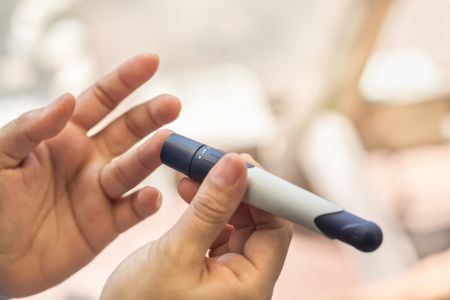Priority 3
Short-term complications of hypoglycaemia and/or hyperglycaemic hyperosmolar syndrome and ketoacidosis
Priority 3 - Short-term complications of hypoglycaemia and/or hyperglycaemic hyperosmolar syndrome and ketoacidosis leadership team:
Associate Professor Spiros Fourlanos (endocrinologist)
Professor David O’Neal (endocrinologist)
Associate Professor Wendy Davis (epidemiologist)

The acute complications of hypoglycaemia and hyperglycaemic hyperosmolar syndrome (HHS)/diabetic ketoacidosis (DKA) can be devastating, including leading to vital organ injury and death and significant psychological, societal, and economic burdens.
Our projects focus on preventing acute metabolic complications, in T1DM and T2DM, in all individuals (Indigenous populations, rural to metropolitan-based); and primary and secondary prevention. Interventions range from responses initiated by the person with diabetes, to interventions by healthcare professionals, seamlessly bridging care between the community and hospitals and preventing unplanned hospital admissions.
(3A) A novel clinical prediction and alert tool ‘Novel Real-time Electronic Glucometric Alert System (REGAS)’ to identify risk for hypoglycaemia, HHS/DKA and to optimise glycaemia and reduce infection in hospitals via early diabetes specialist intervention - Led by Associate Professor Spiros Fourlanos
(3B) The REMODEL ‘mHealth’ system comprising a smart-phone application paired with glucose meters to generate automated text messages for people with diabetes and multi-disciplinary health professionals. Further work will enable EMR integration - Led by Professor Anthony Russell and Dr Anish Menon
(3C) A structured approach incorporating interstitial fluid ketone sensing in T1DM with SGLT2i use to prevent ketosis and transform major cardio-renal outcomes - Led by Professor David O’Neal
(3D) Flash Glucose Monitoring (FlashGM) to improve glucose management in Indigenous Australians - Enhancing Quality of Life assessment for Health Economic Analysis - Led by Associate Professor Elif Ekinci
(3E) An immunomodulatory therapy to preserve beta-cell function at T1DM diagnosis, ultimately reducing DKA and hypoglycaemia risk - Led by Professor Josephine Forbes
(3F) Impact of glycaemic extremes on the quality of sleep and QoL - Led by Associate Professor Elif Ekinci and Professor David O’Neal.
(3G) The ACADI Health economics unit will commercialise T1DM simulation modelling software using QALYs to evaluate new technologies. Software is based on an adapted T2DMUKPDS Outcomes model - Led by Professor Philip Clarke and Dr An Duy Tran
(3H) A structured, behavioural education program to empower technology-using people with T1DM to manage their glucose - Led by Professor David O’Neal